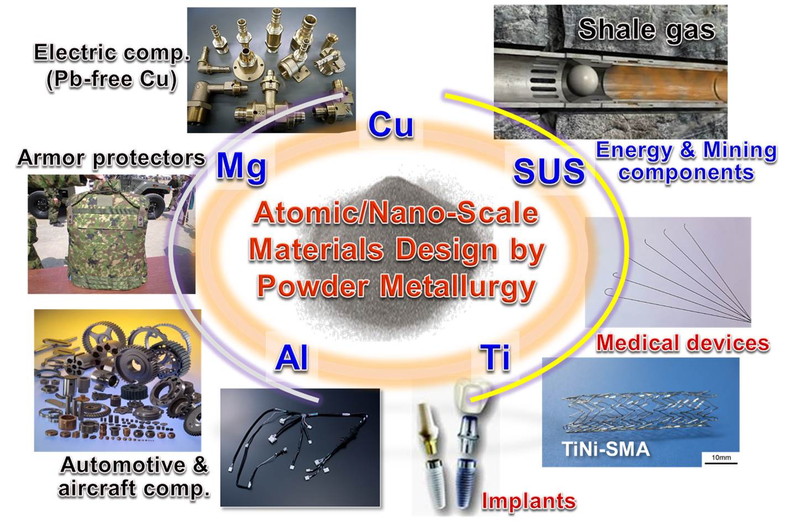Our laboratory is dedicated to creating a healthy society where the psychological effects of affective android robots on humans can be effectively controlled. We focus on understanding and developing dynamic systems encompassing affective expression, the psychological impact on people, and the interactions between humans and robots.
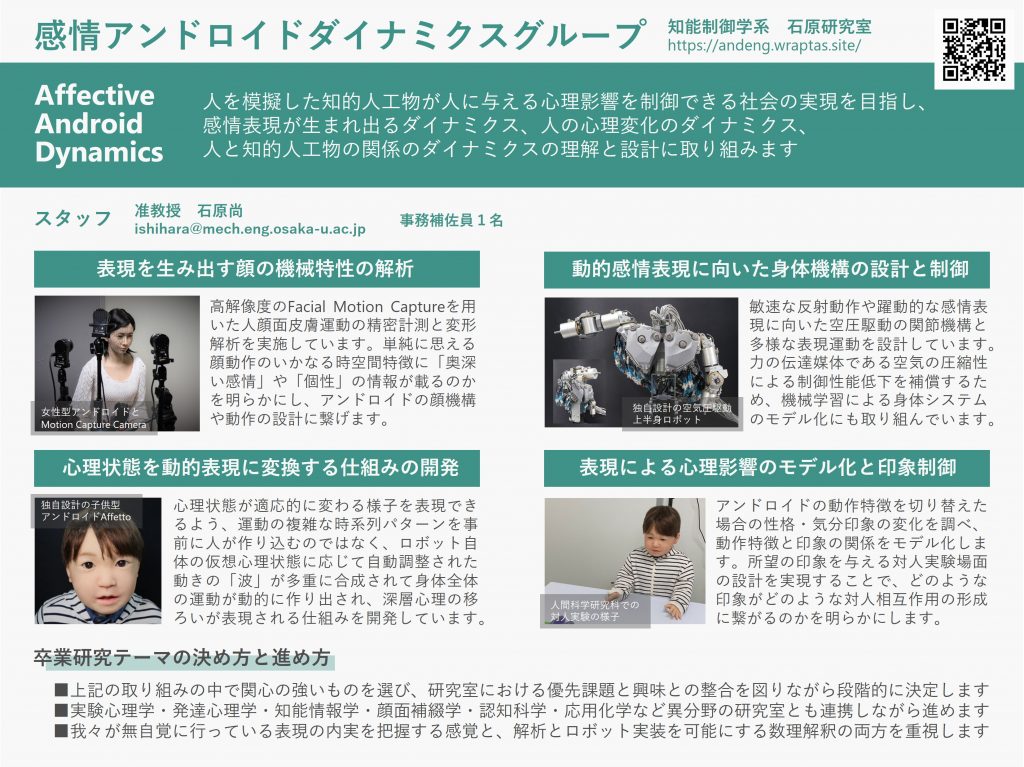
Our laboratory aims to pioneer new frontiers in system design through an interdisciplinary approach that integrates mechanical engineering, information science, and control engineering. We tackle diverse phenomena from multiple perspectives, such as information and communication technologies, optimization, biomimetics, distributed systems, and artificial intelligence, to extract the essence of control and pursue the creation of innovative mechanical systems. Through collaborations among academia, industry, and government, we seek to address social infrastructure challenges in areas such as mobility, robotics, security, and energy.
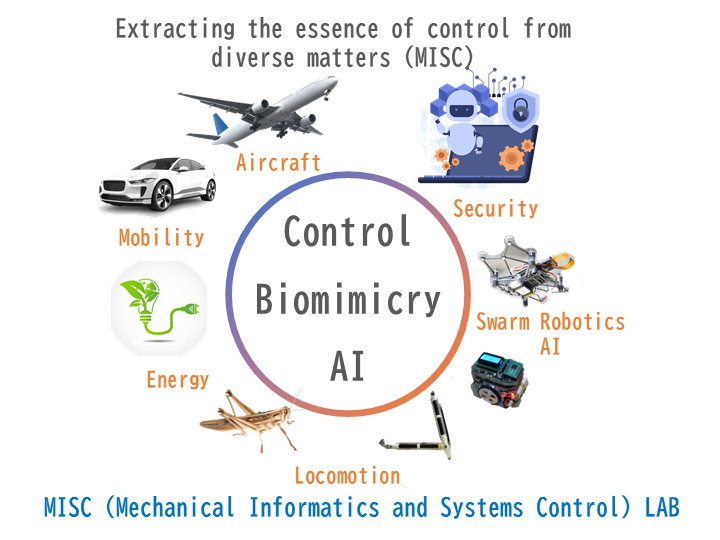
Multiscale Transport Phenomena Subarea
In our laboratory, we aim to solve real-world problems by gaining an understanding of the underlying mechanisms that cause changes in the electrical, optical, and magnetic properties of materials when they undergo deformation or phase transitions. Based on our findings, we are trying to create nanostructures with adjustable electrical resistance in response to deformation, as well as highly sensitive hydrogen gas and molecular sensors. These developments will contribute to the creation of sustainable societies.
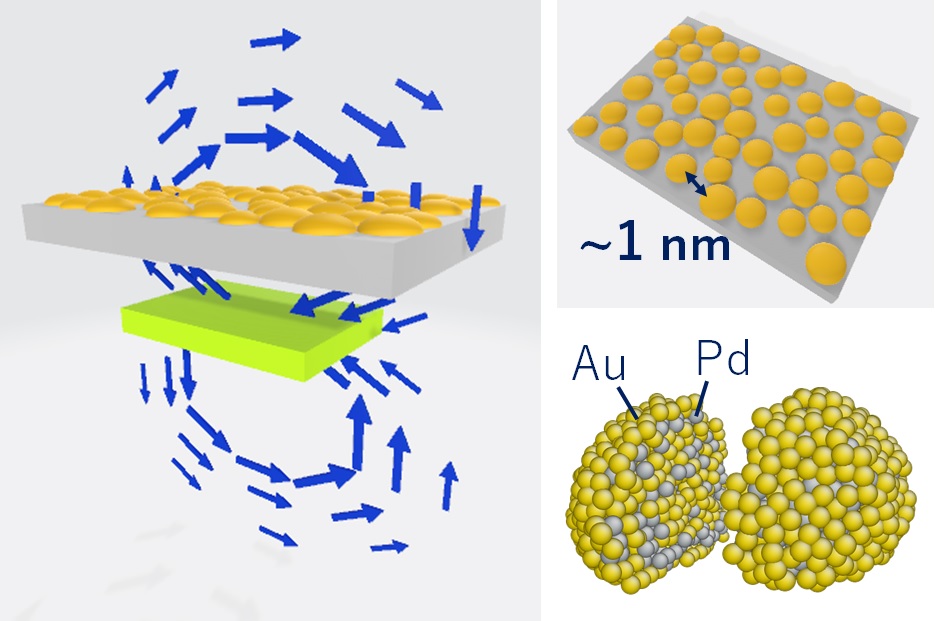
Establishment of computational theory and methodology of multiscale dynamics for microscopic open systems, which incorporates surrounding environmental effects to isolated systems.
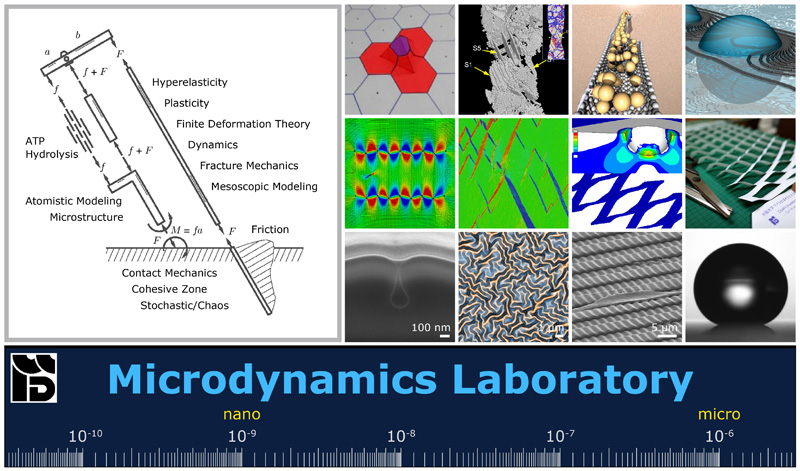
Based on analytical studies of elastic wave and ultrasonic wave in solid media, new material evaluation technique and sensing technique have been developed. In particular, studies on guided wave propagating in plate-like structures range from research of new calculation technique to development of advanced non-contact vibration measurements such as laser ultrasonics and air-coupled ultrasonics.
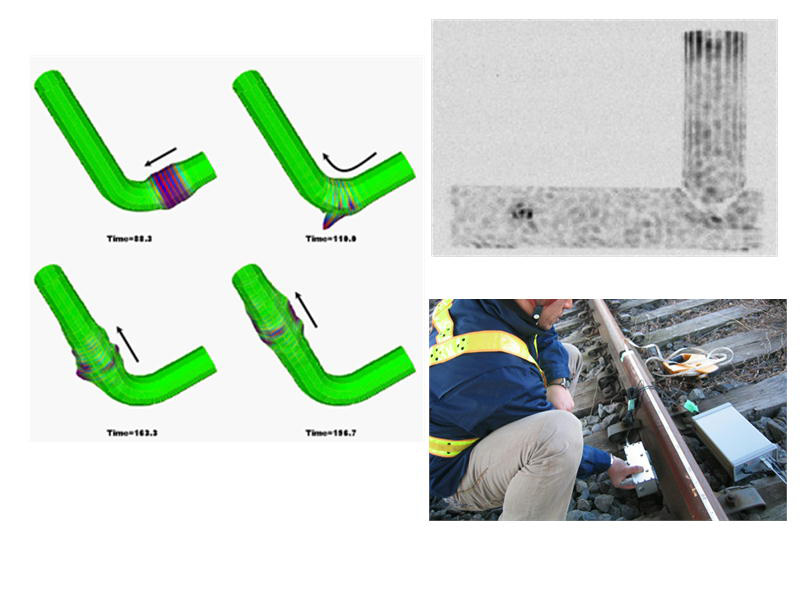
We study the physics of fluid flow, mainly turbulence, fluid-solid interaction and interfacial phenomena, using numerical simulation. The study includes development of new numerical techniques and their application to practical systems. Potential application of our expertise covers broad situations from analysis of existing fluid machinery to development of brand-new mechanical complex.
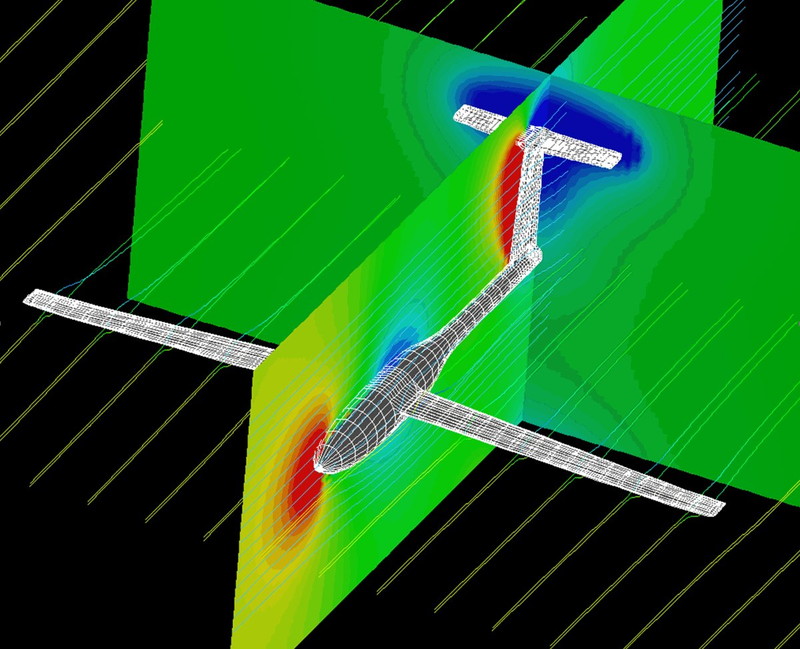
Research in our group encompasses a wide range of nonlinear and nonequilibrium fluid phenomena from molecular to macroscopic scales, focusing on the fundamental aspect, and aiming at the establishment of novel nonlinear and nenequilibrium fluid mechanics.
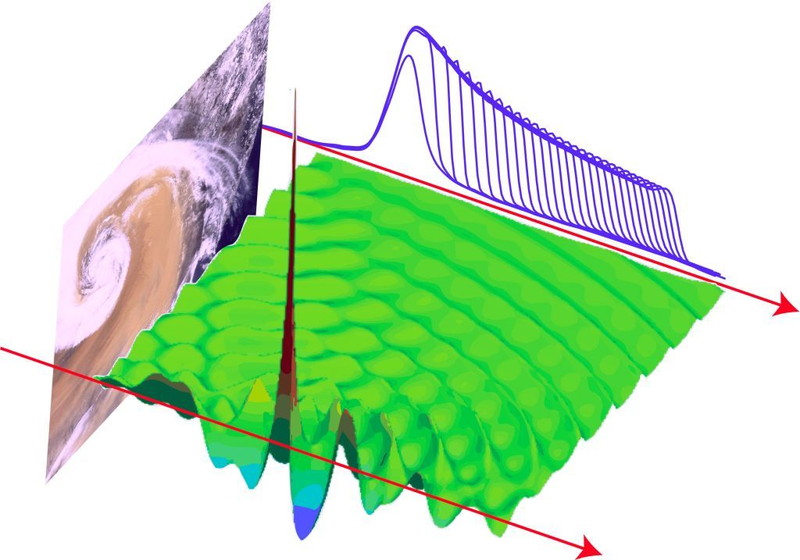
Aiming at the technological advance of the next-generation energy conversion devices such as fuel cells and flow batteries, we perform rearch to elucidate chemical reaction and transport phenomena in the devices.

Studies of the highly efficient and clean combustion, the plasma assisted combustion/ignition, the utilization of biomass, the ammonia combustion as an energy carrier, the effective use of combustion field are conducted in the combustion engineering laboratory of Osaka university.
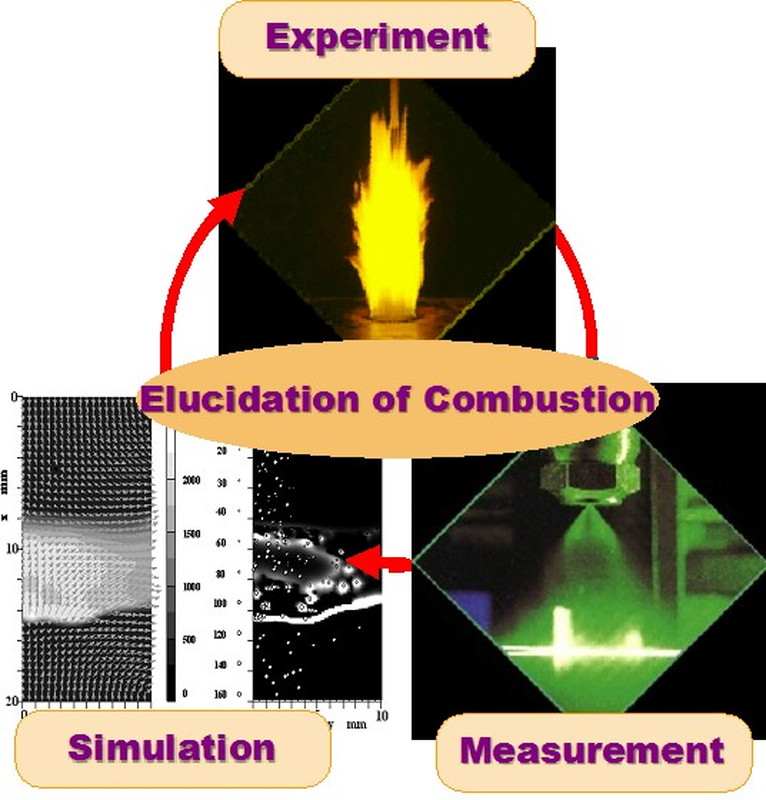
We study principles of heat and mass transfer from nano- to macro-scale to make efficient use of heat energy from the view point of thermal engineering. (Key words) Control of heat and mass transfer, Control of thermophysical properties, Thermal resistance, Interfacial phenomena, Phase change phenomena, Nanostructed interface, Nanofluidics, Molecular simulation, Machine learning.
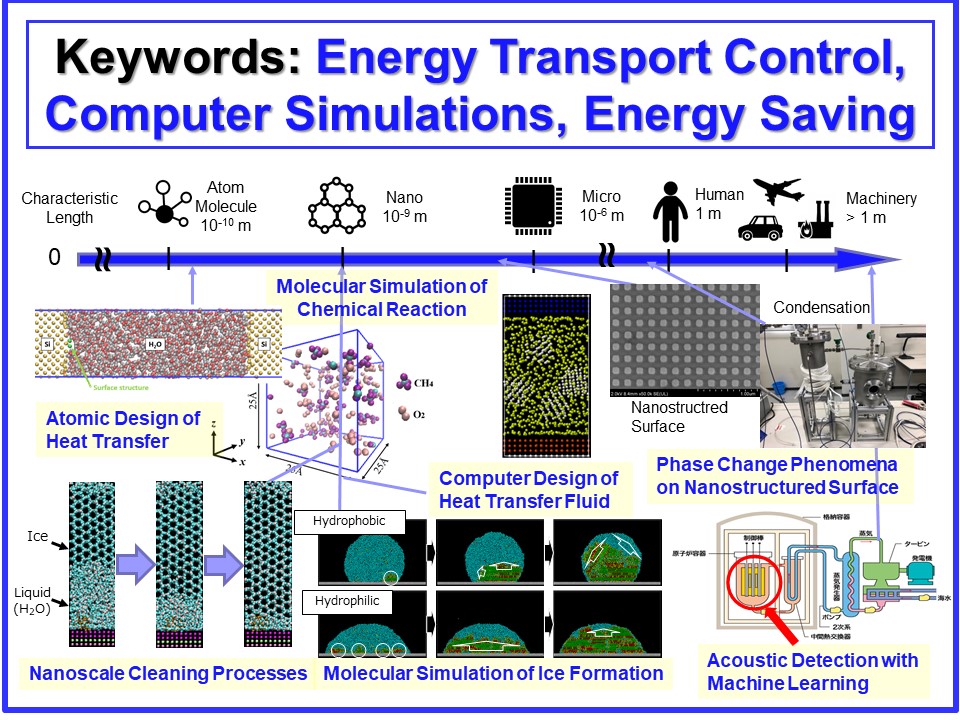
This laboratory is in charge of research and education on theories, methodologies and computer-based techniques for rationalizing the process of product design and development. They are aimed to create superior innovative designs in a totally compromised way among values, functions, cost, time, etc. This laboratory delineates the four research directions, i.e., Products, Process, Function & Structure and System of Systems.
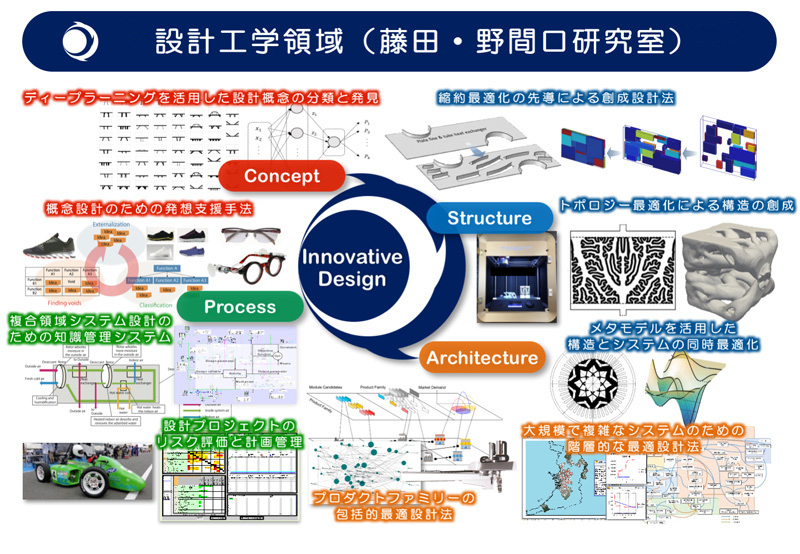
Precision Processing Subarea
Enomoto Laboratory conducts education and R&D activities of precision/ultra-precision machining, especially cutting, grinding and polishing. The targets of our laboratory are to “achieve ultimate manufacturing” and “create new values” in the precision processing area.
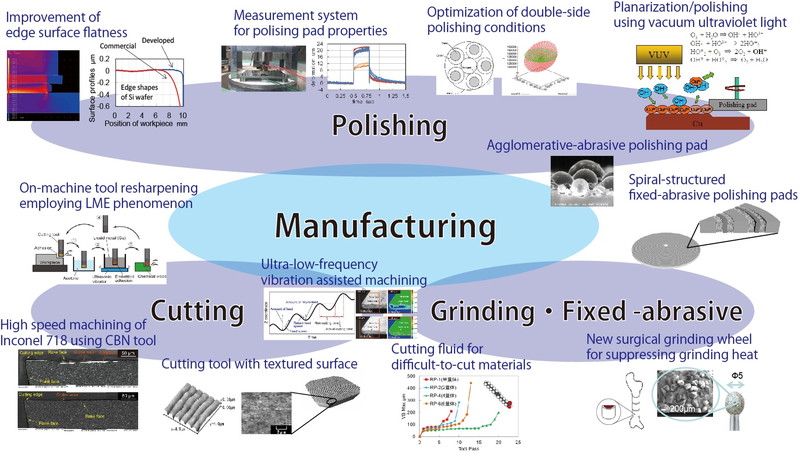
We integrate nano measurement and fabrication in order to establish the highly developped nano production system. Our research are based on the laser applied measurement and fabrication techniques. One of the typical research topics is developping nano-CMM system for nano in-process measurement. Optical radiation force is applied for controlling the sensitive non-contact probe in the integrated nano maching system. This probe is expected to realize better than 10nm resolution during 3-D coordinate measureing.
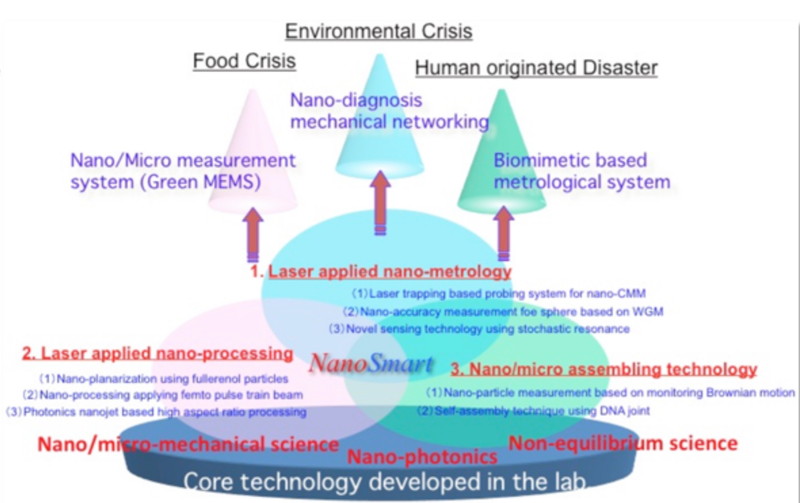
This laboratory conceptualizes the nature of artifact systems desirable for a sustainable society and systematizes design methodologies for artifact life cycles and product service systems from the environmental, social, and economic aspects. The basis of our research is design engineering, life cycle engineering, and ecology.
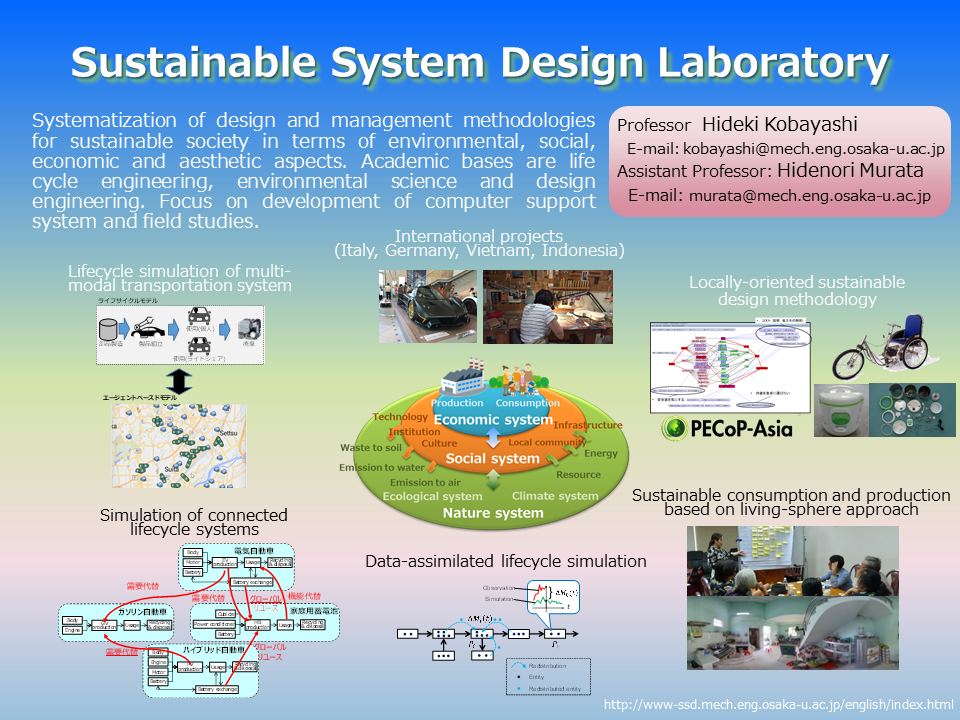
We are studying various types of quality-of-life technologies based on human physiology, psychophysics, and biomedical engineering that can support the daily life and rehabilitation of persons with disabilities and elderly individuals through multidisciplinary collaboration. The research areas include assistive technologies for eating, mobility, and communication, healthcare techniques for prevention of frailty and lifestyle diseases as well as sensing and actuation devices for human augmentation.
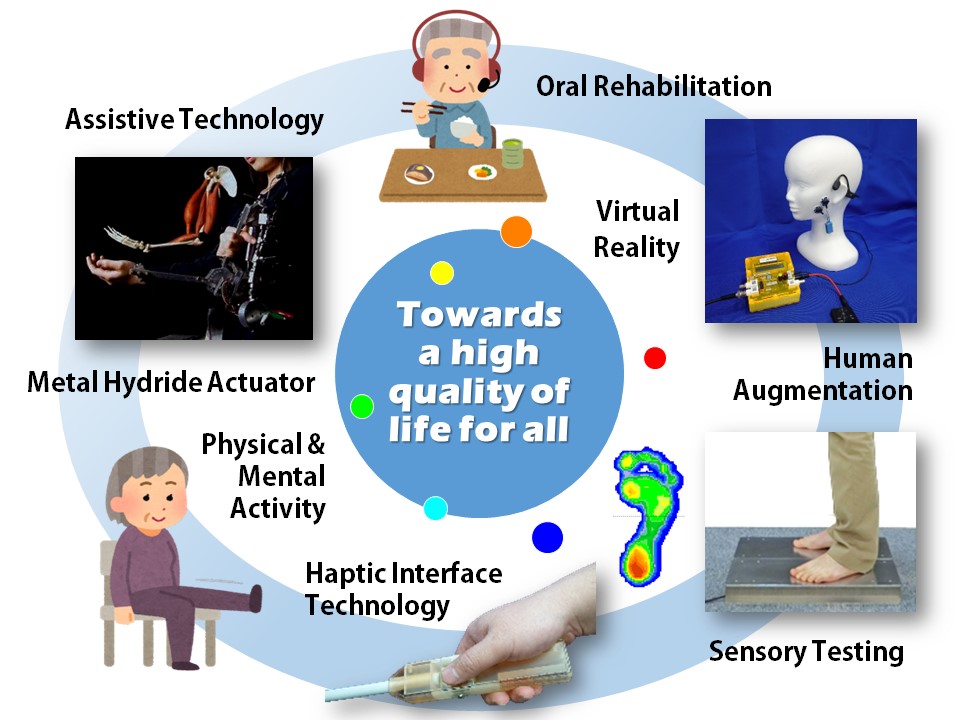
Walk, Swim, Rock and Roll —. We exploit every aspect of “motion”, with full aid of deepest understanding in classical mechanics, dynamical system theory, nonlinear control, robotics, mechatronics, or even in zoology, linguistics, etc. Our recent interest is centered at the principle of locomotion, induced by contact constraint between the body and its environment. We equally put importance on unbiased observation, mathematical thinking and rapid manufacturing.
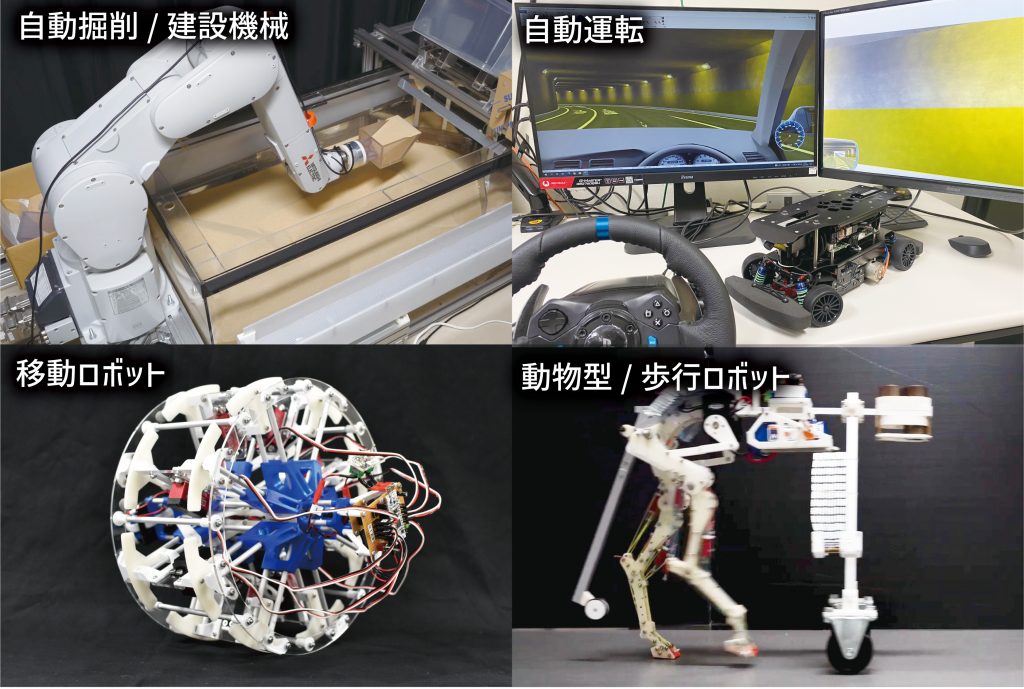
We conduct cutting-edge research in robotics and mechatronics, with a central focus on manipulation—the art of controlling and handling objects. Our aim is to establish a distinctive academic framework that spans fundamental theory, the development of numerical simulation techniques, and experimental validation with real-world systems.
In addition, through interdisciplinary collaboration with fields such as dentistry, and food science, we strive to explore unprecedented challenges and novel approaches in manipulation and sensing, ultimately developing theoretical foundations for system design and implementation.
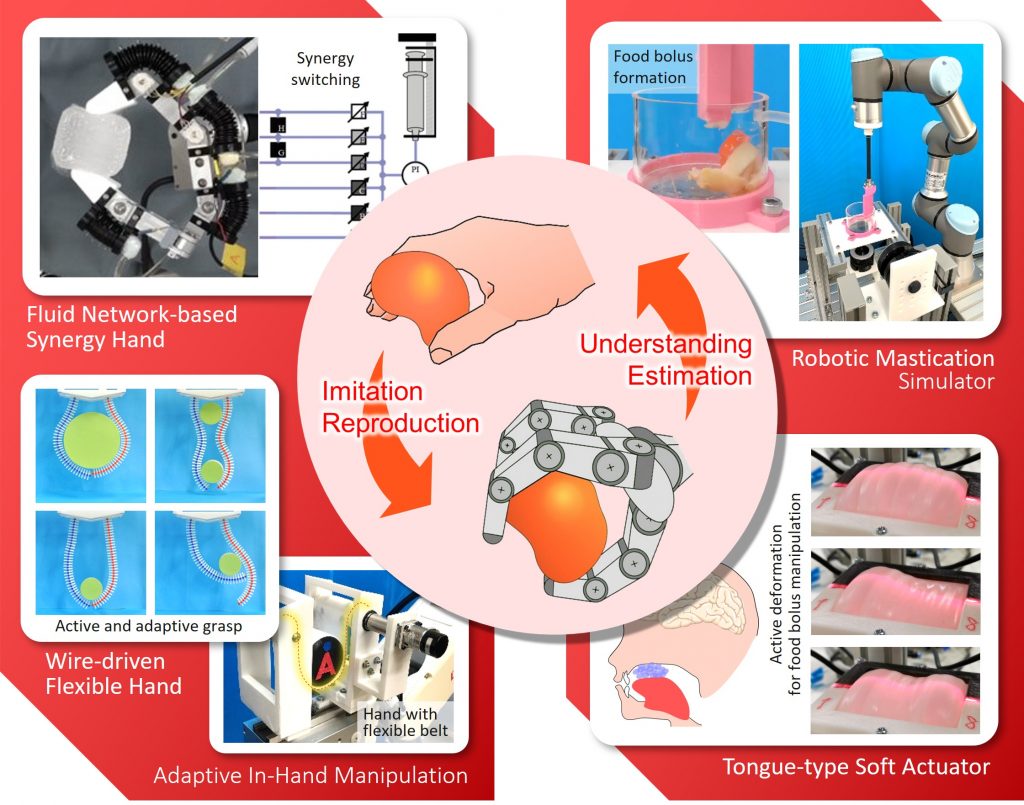
We have demonstrated an environmentally robust biotic-abiotic robotic system that uses living components, called “Cellular Build Up Wet Nano Robotics”. To utilize robust biological components as a functional systems and self assembly process and their emergent functionality, and to build up such a soft and wet machines will lead us an innovative fundamental change and produce a new principle and design to future man-made systems.
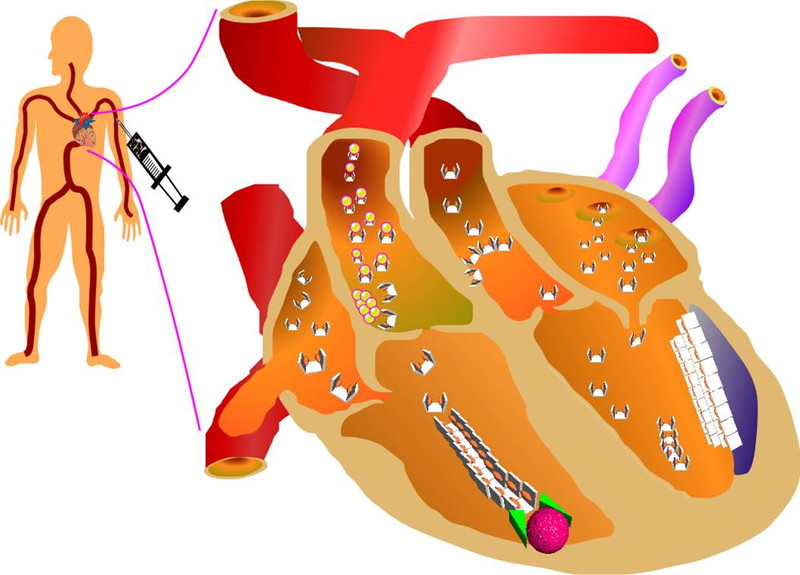
We are making research on the stability and control of spacecraft based on the spacecraft orbital and attitude dynamics and nonlinear control theory. We are developing an efficient orbital control and an agile attitude control of spacecraft using thrusters or control moment gyros.
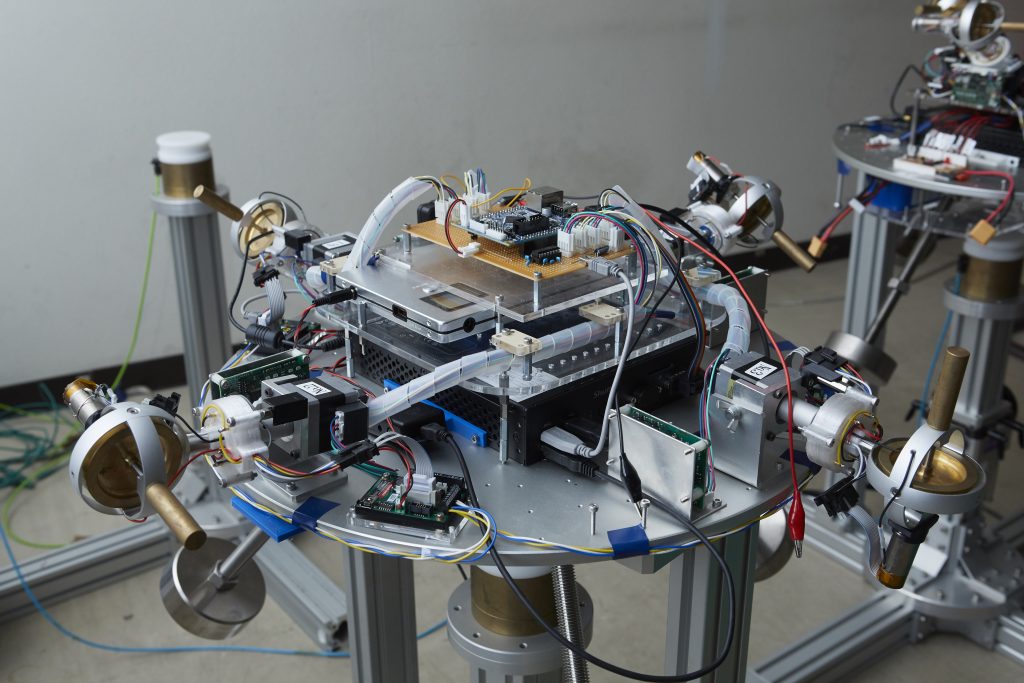
Fundamental studies are performed concerning joining, cutting, surface modification and removal processing with laser beams, aimed at advanced fusion between laser science and production engineering. We focus on clarification of welding or joining mechanisms and intelligent monitoring technology on the basis of the visualization of material processing phenomena with high-speed optical observation or X-ray transmission imaging techniques. Moreover, laser should be utilized with not only high thermal efficiency but also physicochemical effects induced by interaction between light and material. Thus we create innovative processes including laser cladding and selective laser melting, put these processes to practical use and disseminate achievements of our research to the world.
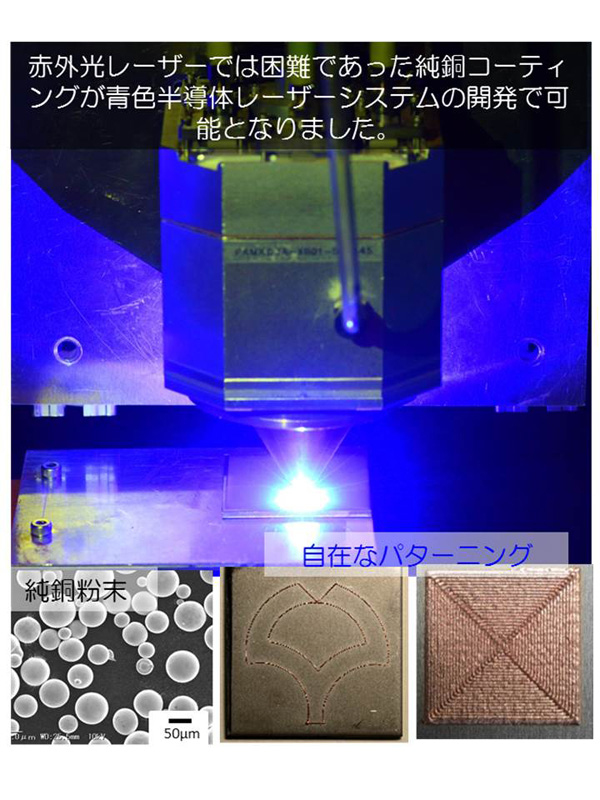
Top

